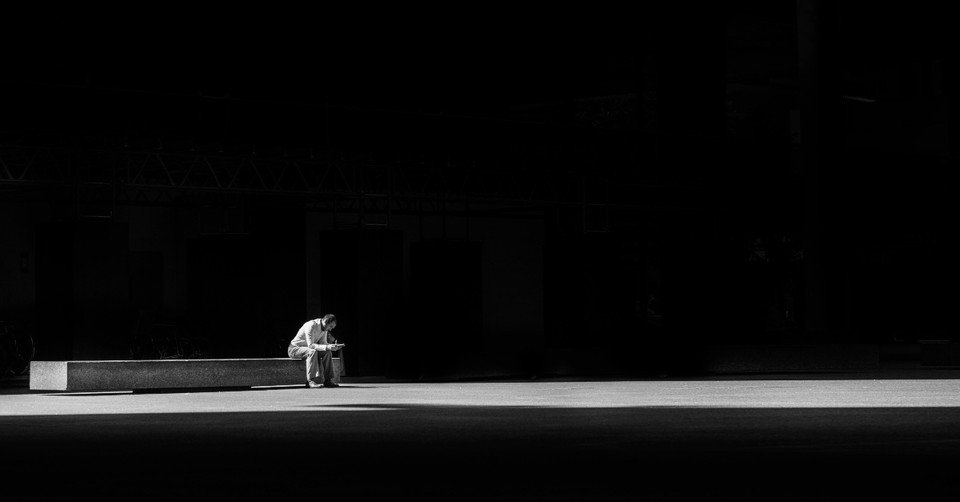Are We Born with a Sinful Nature, or Do We Earn It?

What Is the Meaning of 'Sinful Nature' in the Bible?
What do the words mistake, mess up, and stumble have in common? They are all terms people use to blunt the rightful conviction brought about by discussions about our sinful nature. Sin can be defined as any action or attitude which fails to conform to God’s moral law. When we discuss our sin nature, we are talking about peoples’ inescapable, inevitable predisposition to sin. The Apostle Paul alludes to this in his letter to the Ephesians, describing nonbelievers as children of wrath by nature (Ephesians 2:3).
We live in a society where the church more and more seems to shy away from teaching on sin. When the topic of sin inevitably comes up, it’s common for people to sugarcoat the discussion in terms and phrases others won’t find so offensive. Imagine rewriting the warning label on a bottle of deadly poison and replacing the words “will cause death” with the words “drinking not recommended” in order to reduce the shock value. Obviously, changing the description has no impact on the deadly nature of the poison, nor does it change what will happen to a person if they drink it. Furthermore, such a change in wording would be considered deceptive because it purposefully downplays the full severity of consuming the poison. Of course, no one would ever consider doing such a thing.
Why then do people feel it’s acceptable to do this when it comes to the reality of our sinful nature? Sin is an abominable offense against our holy God, and its act deserves eternal condemnation. We must expose it for what it really is rather than covering its offensive nature with palatable language. People may have good intentions when they try to soften the discussion regarding our sin nature; however, in reality, this does not accomplish the work of God. All it does is stunt the sanctification of the church because repentance does not seem urgent when sin is not presented with the severity it deserves.
What Does the Bible Say about Sinful Nature?
We do not become sinners after we sin for the first time, we sin because we are already born sinners. Scripture reveals all people inherit a sin nature because of Adam’s sin in the Garden of Eden (Psalm 58:3). God originally created Adam and Eve without a sin nature. He did, however, give them the free will to make the choice to follow Him. Authentic love and worship are only possible if we have free will, but when Adam sinned, the consequences proved fatal. Humanity’s very nature was corrupted. Now, like a septic spring that can only produce putrid water, all people sin when they exercise their free will because their thoughts, attitudes, and decisions flow out of their sinful nature.
David said, “Behold, I was brought forth in iniquity, and in sin did my mother conceive me” (Psalm 51:5). In this passage, David is not saying he was born from his mother’s sin. Psalm 51 was written after David’s sin with Bathsheba, and his focus was on his own sinfulness. The context makes it clear David is saying he was born with a sinful nature. David was not unique in this regard; all people are born with a sinful nature. Children are a perfect illustration. No parent has ever needed to teach their child to sin. Children find ways to sin all by themselves without instruction because all people have a sinful nature.
Everyone is born alienated from God as a result of sin. Anyone who does not have saving faith in Jesus Christ exists in a fallen state outside of fellowship with our Lord. Scripture describes this state of existence as darkness (Ephesians 5:8). Those who walk in the dark have no hope to come to salvation by their own efforts. Our sin nature blinds our minds and makes it impossible for us to receive God’s Word, let alone live by it (Romans 8:6-7). In Matthew 6, Jesus states, “But if the eye is bad, your whole body will be full of darkness” (Matthew 6:23). In this passage, the eye is a metaphor for what shapes our decisions and judgments. Much like a ship trying to navigate with a broken compass, sinners cannot live godly lives because their decisions and judgments flow out of their sin nature. Apart from the supernatural, regenerative work of the Holy Spirit, sinners are incapable of coming to faith in Christ. Even when confronted directly—unless the Spirit works to enlighten the mind—the sinner will be incapable of accepting God’s Word because it will appear as foolishness to them (1 Corinthians 2:14).
At this point, a question may have arisen. Does Scripture teach sinners are incapable of doing anything good? After all, we see unsaved people do kind, loving things all the time. Surely, we wouldn’t say someone like Mahatma Gandhi didn’t do any good, would we? Yes and no. God has allowed various means to restrain our sinful nature and encourage good behavior such as civil laws, societal and family expectations, and convictions from the human conscience. In no way are any of these means perfect; however, they do provide effective influences to contain our sinful nature and enable society to function each day. Because of these things, people are not as wicked as they could be.
On the other hand, even good deeds done by nonbelievers are corrupted by sin and cannot please God. Paul tells us those in the flesh cannot please God (Romans 8:8). How can this be, though? Can we really say that feeding the hungry, treating the sick, and educating children are sinful actions if they are done by a person who is not saved? Yes, we can. Consider this: a nonbeliever finds their ultimate purpose for living in something other than God. This means everything a nonbeliever does is motivated by idolatry. The author of Hebrews tells us it is impossible to please God if we do not have true faith (Hebrews 11:6). For this reason, whenever a sinner does anything, regardless of how good it may be, it is still sinful because it stems from an unbelieving, idolatrous heart. Our sinful nature makes it impossible to possess true faith and it also makes it impossible to not sin (Romans 3:9-18).
Can Christians Have a Sinful Nature after They're Saved?
After we are saved, we can still sin because our sinful nature remains. However, the good news for Christians is that we are no longer slaves to our sinful natures because of what Christ did for us (Galatians 5:13-16). We now have a choice not to sin. For all who believe the Gospel, not only are we destined to go to heaven, but we have also been given the capacity to live holy lives now (Galatians 2:20). The eternal life given by Jesus starts immediately in this life for all who believe (1 John 5:11-12). For this reason, the Apostles gave regular encouragement to the church not to sin, but to be holy (Romans 8:13; Colossians 3:5-6; 1 Peter 4:2-3). God’s call to be holy is a daunting task, but our amazing, loving Lord has not left us to walk alone. It is precisely within our loving fellowship with God, that He gives us the means to be holy. The indwelling of the Holy Spirit enables us to live holy lives for God. For this reason, the Apostles gave regular encouragement to the church not to sin, but to be holy (Romans 8:13; Colossians 3:5-6; 1 Peter 4:2-3).
The Christian’s battle against sin is never finished on this side of heaven. Jesus tells us we must pick up our cross daily and follow Him (Luke 9:23). Tragically, we all still sin each day. The difference is Christians are no longer at peace with their sin and they strive to grow in sanctification because they are new creations in Christ (2 Corinthians 5:17). Thankfully, our perfect Savior has promised to never let us go (Romans 8:31-39). All praise be to God for giving us the capacity and affording us the privilege to serve Him in this life. To Him be the glory and honor forever and ever. Amen.
Photo credit: © Unsplash/Matthew Henry

This article is part of our larger resource library of Christian questions important to the Christian faith. From core beliefs to what the Bible says about angels, we want to provide easy to read and understand articles that answer your questions about Christian living.
What Do Christians Believe?
Is Gambling a Sin?
Is Drinking Alcohol a Sin?
What Does God Look Like?
Are Guardian Angels Real?
What is Heaven Like?
Originally published August 09, 2021.







